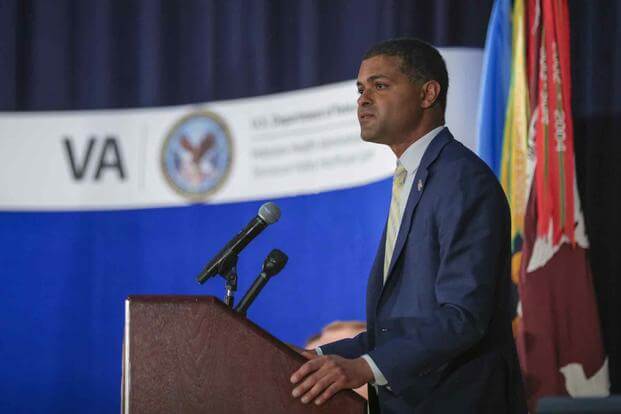New efforts to increase the availability of medical appointments in several specialties at Department of Veterans Affairs medical centers resulted in more appointments and lower wait times in the first half of the fiscal year, according to VA officials.
The "Access Sprints," as the department called the additional evening, weekend and telehealth appointments for primary care, cardiology, gastroenterology and mental health services, brought in 25,000 new patients and increased the number of appointments by 11% between October 2023 and the end of February.
The effort also resulted in a 15% reduction in wait times for primary care and a 5% drop in waits for mental health appointments, VA officials said last week.
Related: New Cold-Assignment Incentive Pay Coming for Airmen and Guardians at 7 Bases
The initiatives followed a massive hiring effort last year, as well as a push to bring more veteran patients into the VA medical system. Last month, the VA started offering health care to any veteran who deployed to a combat zone since the Vietnam War, as well as those who may have been exposed to toxic substances as part of their jobs at domestic military installations.
The expansion was made possible by the PACT Act, the legislation approved in 2022 that aimed to provide medical care and disability compensation to former troops sickened by exposure to environmental toxins during military service.
VA Under Secretary for Health Dr. Shereef Elnahal said last week that, as a result of the Access Sprints, fewer patients experienced excessive wait times, and roughly 14% of new patients who had been referred to the community for care were seen more quickly by having access to appointments in a VA hospital or clinic.
"Our VA leaders and staff are to be credited for this unprecedented expansion in capacity and the significant progress we have made in offering access to care," Elnahal said during a press conference March 26.
In 2023, the Veterans Health Administration -- the arm of the VA that oversees medical services for vets -- hired a record 61,000 new employees, for a net increase of 28,000.
To ensure that the new and existing staff did not experience burnout as a result of the Access Sprints, VA facilities worked to reduce administrative burdens, such as email alerts, clinical messages and scheduling notices, so providers could concentrate on care, said Dr. Michael Charness, who serves as chief of staff at the VA Boston Health Care System.
"Implementing just a few of these changes produced a quick drop in view alerts in Boston, and clinicians noticed the difference," Charness said during the press conference.
When Elnahal announced the concept earlier this year, he said that the use of the term "sprints" to describe the surge was deliberate, given that the VA did not know at the time whether such operations were sustainable.
He said last week that VA medical centers are now examining their experiences and seeing whether continued surge capacity is sustainable.
"Hopefully, a lot ... will stay in place. We have to be mindful of overall staffing, our authorities, and ability to pay things like overtime, et cetera. And so not all of it will be sustained, but we're asking every medical center and network to look very closely about what we can continue," Elnahal said.
So far this fiscal year, the VA has hired 7,144 psychologists, 20,711 social workers, 29,205 physicians and more than 91,000 registered nurses.
Under the PACT Act, it also is seeing record health care enrollments, expecting to grow its patient load by 55,000 new veterans in the next five years.
As a result of record retention -- the VA's turnover rate dropped by 20% from 2022 to 2023 -- as well as budget constraints, VA officials plan to reduce medical staff by roughly 10,000 this year, mainly through attrition and retirements.
Elnahal said the bulk of those reductions will likely occur in management, program support and supervisory roles that aren't "veteran-facing."
"I think we have the overall end strength to be able to build on the Access Sprints as a result of the record hiring year we just had," Elnahal said.
The VA has requested $369.3 billion for its fiscal 2025 budget, up roughly 13% from fiscal 2024. The requested increases focus largely on medical care, infrastructure improvements and benefits services under the PACT Act.













